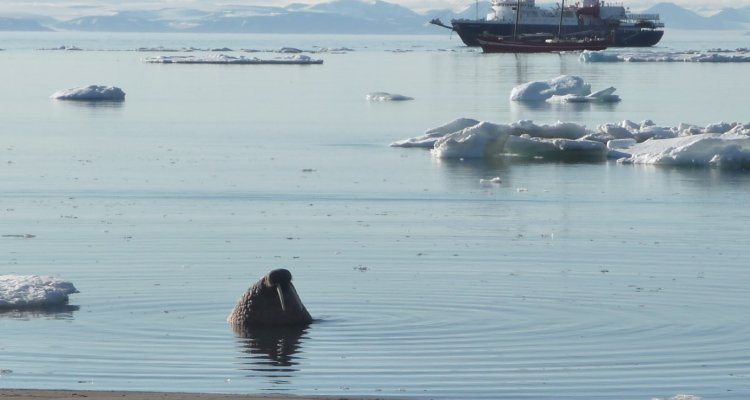
Project
Climate information systems in the Arctic Ocean: use and implications
Climate change is rapidly turning the Arctic region into a focal point of economic and geopolitical development, with potential implications for wildlife, ecosystems and indigenous communities.
Large public and private sector investments are currently made in the development of climate services to gain control over the fundamental changes in the biophysical environment (e.g. sea-ice dynamics, storms) and to facilitate sustainable development of current and future economic activities and end-users (e.g. shipping, tourism, fisheries, energy, communities). It is widely recognized that the access and quality of climate services for actors and sectors operating in remote, dynamic and resource-rich Arctic marine environments needs to be improved (PPP-YOPP). However, different types of end-users have different abilities, routines, situational contexts and interests to interact with climate services. Understanding these differences is crucial for enhancing the salience of Arctic marine climate services.
This project aims to provide these insights through various international project collaborations. First, through the involvement of dr. Machiel Lamers in the ArcticInfo project coordinated by dr. Maaike Knol, University of Tromso, Norway, and funded by the FRAM Centre. ArcticInfo aims to analyse the provider networks of environmental information systems in the Arctic. Second, through the involvement as co-chair in the Societal and Economic Research and Applications (SERA) Subcommittee World Meteorological Organization’s Polar Prediction Project (PPP). The aim of this initiative is to advance numerical modeling, data acquisition and assimilation; ensemble forecast methods, verification, and the development of prediction products for the polar regions. The work of the PPP-SERA is focused on understanding how weather and climate information and forecasts are accessed, understood and utilized in, for and to learn about the polar regions. This work has the potential to enable weather and climate information providers and users to obtain greater value from advances in polar prediction that result from the Polar Prediction Project. The project is searching for further funding options from European funding initiatives and philanthropic networks.